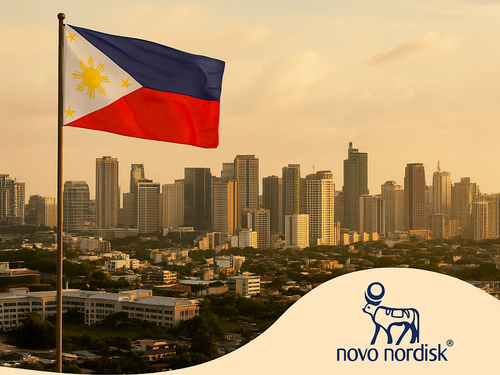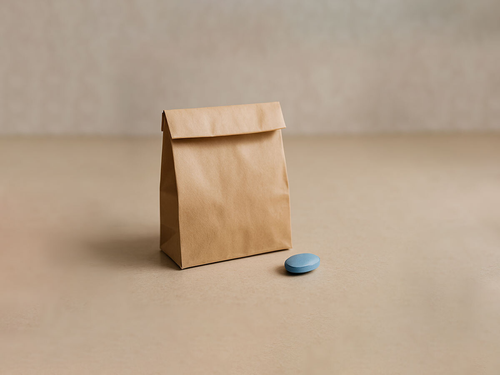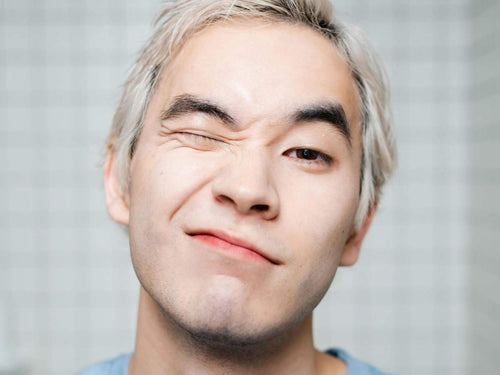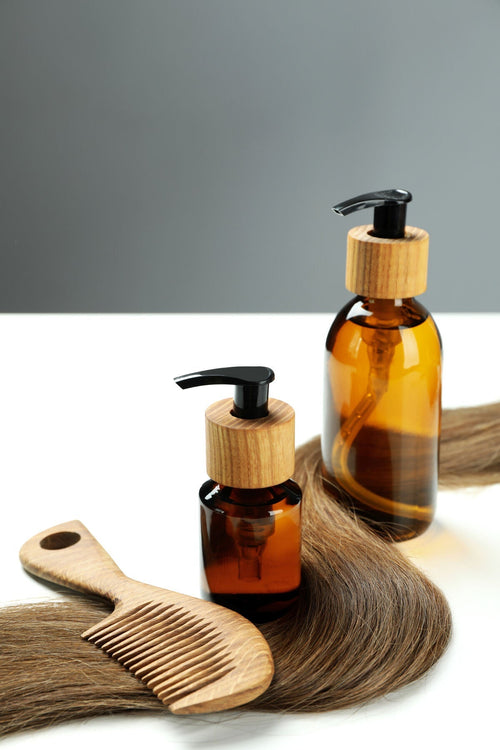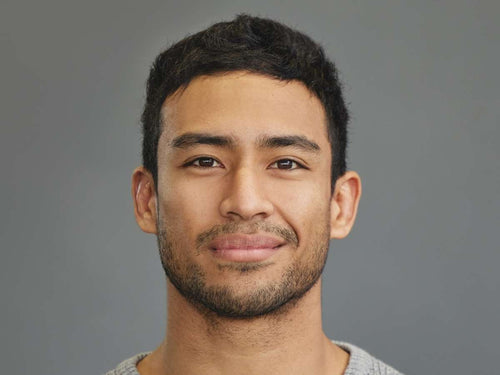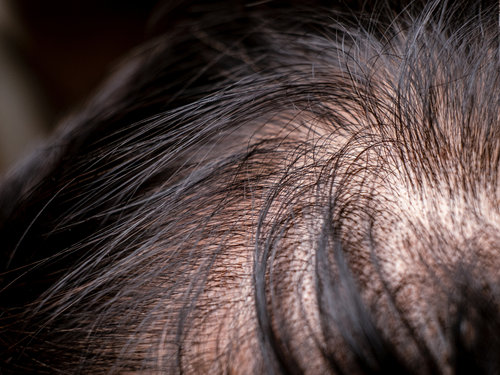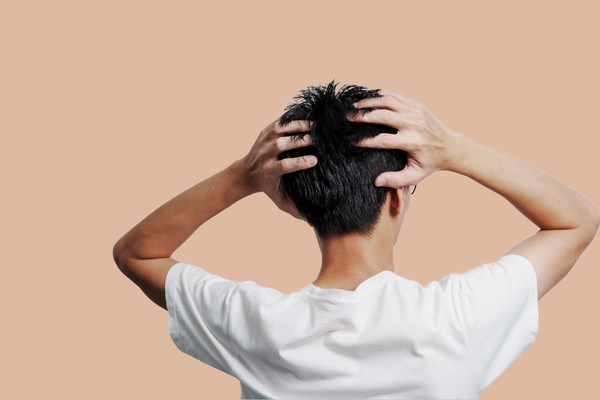Hair Growth Products in the Philippines That Actually Work

Many Filipino men experience hair thinning, receding hairlines, or slow hair growth, often wondering if there are products that actually work. With so many shampoos, serums, and supplements on the market, it’s easy to fall for false promises and miracle cures that don’t deliver real results.
The truth? Only a handful of hair growth products have scientific backing. Whether you're dealing with male pattern baldness (androgenetic alopecia), stress-related shedding, or just want thicker hair, choosing the right treatments can make a big difference.
This guide breaks down the best science-backed hair growth products available in the Philippines and how they work.
1. FDA-Approved Hair Loss Treatments
If you’re experiencing significant hair loss or thinning, the two most effective hair regrowth products are Minoxidil and Finasteride. These are the only FDA-approved treatments for hair loss with strong clinical evidence.
Minoxidil (Rogaine)
Minoxidil is an over-the-counter product that some doctors recommend for certain types of hair thinning. Results vary, and use should follow medical advice.
-
How it works: Minoxidil increases blood flow to the scalp, delivering more nutrients to hair follicles.
-
Who it’s for: Best for men with crown thinning or mild to moderate hair loss.
-
Effectiveness: A study in the Journal of the American Academy of Dermatology found that 60% of men saw hair regrowth after 6 months.
-
How to use: Apply 1ml of Minoxidil solution or foam directly to the scalp twice daily.
-
Side effects: Mild scalp irritation, temporary shedding in the first few weeks.
-
How long it takes to work: Most users see improvements within 3 to 6 months, with optimal results after 12 months.
Finasteride (Propecia)
Finasteride is a prescription medicine sometimes prescribed for male pattern hair loss. Only a licensed physician can determine if it’s suitable for you.
-
How it works: Finasteride blocks dihydrotestosterone (DHT), the hormone responsible for hair follicle shrinkage.
-
Who it’s for: Men with receding hairlines or progressive thinning.
-
Effectiveness: A study published in the Journal of Dermatology found that 90% of men using Finasteride for 12 months saw a significant reduction in hair loss.
-
How to use: Take 1mg per day as prescribed by a doctor.
-
Side effects: Rare but may include lower libido or mild hormonal changes.
-
Can Finasteride regrow lost hair? Yes, but it works best for preserving existing hair rather than regrowing fully bald areas.
2. Hair Growth Shampoos and Conditioners
Many shampoos claim to help with hair growth, but only a few contain active ingredients that actually support scalp health and reduce hair loss.
Ketoconazole Shampoo (Nizoral)
Certain medicated shampoos containing antifungal ingredients may help maintain scalp health when advised by a doctor.
-
How it works: Originally used for dandruff, Ketoconazole has DHT-blocking properties that may slow hair loss.
-
Who it’s for: Men with mild to moderate hair thinning or scalp conditions like dandruff.
-
How to use: Use 2-3 times per week in place of regular shampoo.
-
Clinical backing: A study in the International Journal of Dermatology found that Ketoconazole shampoo improved hair density in men with male pattern baldness.
-
Can it replace Minoxidil or Finasteride? No, but it’s a great supporting treatment for scalp health.
Caffeine Shampoos (Alpecin, Plantur 39)
Some cosmetic shampoos include caffeine as an ingredient for scalp care; evidence of benefit remains limited.
-
How it works: Caffeine may help stimulate hair follicles and improve circulation.
-
Who it’s for: Best for men in early stages of hair thinning.
-
How to use: Use daily as part of a hair care routine.
-
Effectiveness: While some studies suggest caffeine shampoos may support stronger hair growth, results are not as significant as Minoxidil or Finasteride.
3. Hair Growth Serums and Topical Treatments
Serums can enhance scalp health, nourish follicles, and reduce breakage, but they are not a substitute for medical treatments.
Rosemary Oil
-
How it works: Rosemary oil is believed to improve circulation and reduce inflammation.
-
Effectiveness: Preliminary studies suggest rosemary oil may support scalp health, but evidence is still limited and should not replace medical treatment.
-
How to use: Massage a few drops into the scalp 2-3 times a week.
Castor Oil
-
How it works: Rich in ricinoleic acid, castor oil is thought to moisturize the scalp and strengthen hair strands.
-
Who it’s for: Best for men experiencing hair breakage rather than male pattern baldness.
-
How to use: Apply weekly as a scalp treatment.
-
Can castor oil regrow hair? No, but it can make hair appear thicker and healthier.
4. Hair Growth Supplements
While supplements won’t regrow hair on their own, they can support healthy hair growth when combined with other treatments.
-
Biotin – Supports keratin production, the protein that makes up hair.
-
Zinc & Iron – Helps prevent excessive shedding.
-
Vitamin D – Plays a role in stimulating hair follicles.
-
Collagen – Supports stronger hair and skin health.
5. Lifestyle Changes for Stronger Hair
Even the best hair growth products won’t work if lifestyle factors are ignored. Here’s how to naturally support hair growth:
-
Improve Scalp Circulation – Massage your scalp daily to increase blood flow.
-
Avoid Excess Heat & Chemicals – Overuse of hair dye, bleach, or excessive blow-drying can damage hair strands.
-
Manage Stress – High stress raises cortisol, which contributes to hair thinning.
-
Sleep Well – Poor sleep affects hormone regulation, including those linked to hair growth.
-
Stay Hydrated – Dehydration can make hair brittle and prone to shedding.
Choosing the Right Hair Growth Products
There’s no one-size-fits-all solution for hair growth, but the best approach is to use scientifically backed products and treatments while maintaining a healthy lifestyle.
Key Takeaways:
-
Minoxidil and Finasteride are the most effective treatments for male pattern baldness.
-
Hair growth shampoos with Ketoconazole may help slow hair thinning.
-
Serums like Rosemary Oil have shown promising results in clinical studies.
-
Nutrient deficiencies can worsen hair loss, so diet and supplements may help.
-
A combination approach—using medical treatments, topical solutions, and a healthy lifestyle—gives the best results.
If you’re unsure which product is right for you, consult a licensed healthcare provider to determine the best treatment plan for your hair goals.

Explore More Guides and Articles You'll Love
Explore our latest guides and articles to help you learn more about the latest trends in the industry.

Stress, Sweat, and the Sun: The Real Reasons Filipino Men Lose Hair Early
Filipino men often notice hairlines changing earlier than expected.

Can Stress Alone Make You Bald? The Science Behind Filipino Hair Loss
Many Filipinos are familiar with how stress can take a physical toll, from restless nights to sudden hair shedding.

Does Biotin Really Help Hair Grow Back? Filipino Review
Hair loss is a concern shared by many Filipinos, from students in Quezon City dealing with academic stress to call center agents managing erratic sleep schedules.

